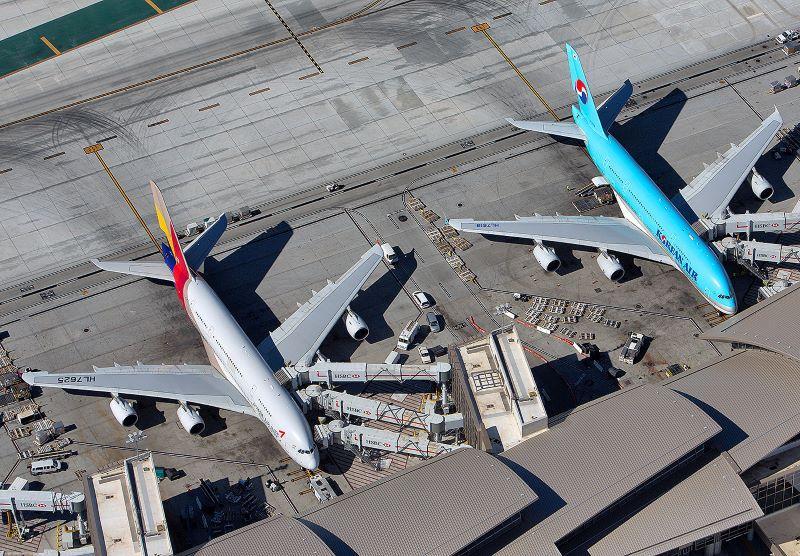
This week’s top air transport stories include Japan’s regulatory approval of a proposed merger between Korean Air and Asiana, and airlines beginning to return Boeing 737-9s to service following grounding for inspections following the Jan. 5 incident involving the inflight loss of a door plug on an Alaska Airlines flight.
Airlines are returning Boeing 737-9s to service, following a near month-long grounding prompted by the Jan. 5 inflight loss of an exit door plug on Alaska Airlines Flight 1282. The return to scheduled passenger flying comes after the FAA approved an inspection and maintenance process on Jan. 24.
Meanwhile, Boeing says it can develop new 737 MAX engine inlets in a year or less and sees the task as the new primary pacing item for 737-7 and 737-10 certification. In addition, the U.S.-based manufacturer is withdrawing its request for a time-limited exemption covering the current engine inlet de-icing system that, if granted, would have allowed the 737-7 to be certified with a known noncompliance under current regulatory standards.
In regulatory news, the Japan Fair Trade Commission approved the proposed merger between Korean Air and Asiana, leaving only the U.S. and the EU to clear the merger, which could arrive in mid-February.
The U.S. Transportation Department (DOT) says it will not renew antitrust immunity for the Aeromexico-Delta Air Lines transborder joint venture and will instead order it to wind down, blaming Mexico for being “fundamentally out of compliance” with the bilateral air services agreement between the countries.
The European Commission opened an in-depth investigation into International Airline Group’s (IAG) proposed acquisition of Spanish operator Air Europa. The new in-depth enquiry, known as a Stage II investigation, will take place under the EU Merger Regulation.
The U.S. Department of Transportation (DOT) gave tentative approval to American Airlines to launch nonstop service between New York John F. Kennedy International Airport (JFK) and Tokyo Haneda Airport (HND), securing slots relinquished by Delta Air Lines.
The U.S. Treasury Department imposed sanctions against Iraqi airline Fly Baghdad, prompting it to cancel flights on all routes and suspend operations. The U.S. Office of Foreign Assets Control (OFAC) on Jan. 22 sanctioned the airline and its CEO Basheer Abdulkadhim Alwan al-Shabanni for providing materiel support to Iranian-backed militias. The airline has denied being involved in any illegal activities, but Iraq’s government has since ordered an investigation into the allegations.
In airline news, New York-based JetBlue Airways outlined a “plan B” for achieving organic growth on its own while seeking to expedite an appeal of the ruling blocking its merger with Florida-based ULCC Spirit Airlines. The plans include $2.5 billion in aircraft deferments, while targeting a return to sustained profitability also through new revenue initiatives, network refinements, and cuts across its cost base including to real estate and staff.
Brazilian LCC GOL Linhas Aereas filed for Chapter 11 in the U.S. Bankruptcy Court for the Southern District of New York as a result of financial hardships lingering from the pandemic years.
Asia-Pacific carriers expect to see the momentum of 2023 carry through 2024, although geopolitical and economic uncertainties loom large. A report by the Association of Asia Pacific Airlines (AAPA) says the region’s airlines carried 278.5 million passengers in 2023, a 161% year-on-year improvement.
In lessor news, two new leasing ventures have emerged. Irish-Icelandic startup IAT Leasing launched operations under the leadership of CEO Martin Browne, who was most recently head of origination strategy for Irish lessor Aergo Capital. IAT is a JV between Icelandic lessor Icelease and Browne’s investment company, Inverse Holdings. Meanwhile, lessor SMBC Aviation Capital and global investment group Caisse de Depot et Placement du Québec have teamed up to create a $1.5 billion aircraft-financing platform called Maple Aircraft Company Holdings.
Dublin-based lessor Avolon predicts the value of new aircraft deliveries is expected to rise by over 15% year-over-year to around $100 billion in 2024 with the delivery of over 1,450 new large commercial aircraft helping to drive airlines’ passenger revenues up 12% to $717 billion and a projected net profit for airlines of $26 billion, a 10% rise.
In sustainability news, Hong Kong’s Business Environment Council and 13 stakeholders launched the Hong Kong Sustainable Aviation Fuel (SAF) Fuel Coalition (HKSAFC), in a bid to promote and accelerate the territory’s adoption of SAF. The coalition also expressed its aim to grow Hong Kong as a regional SAF hub for both Hong Kong and China. Out of the 13 stakeholders, only Cathay Pacific is the full airline member of the HKSAFC, with other airlines represented by the Board of Airline Representatives Hong Kong.
LanzaJet opened its first plant to produce sustainable aviation fuel (SAF) from sustainably sourced ethanol. The Freedom Pines Fuels in Soperton, Georgia, will produce 10 million gal. a year of alcohol-to-jet (ATJ) SAF and renewable diesel.





